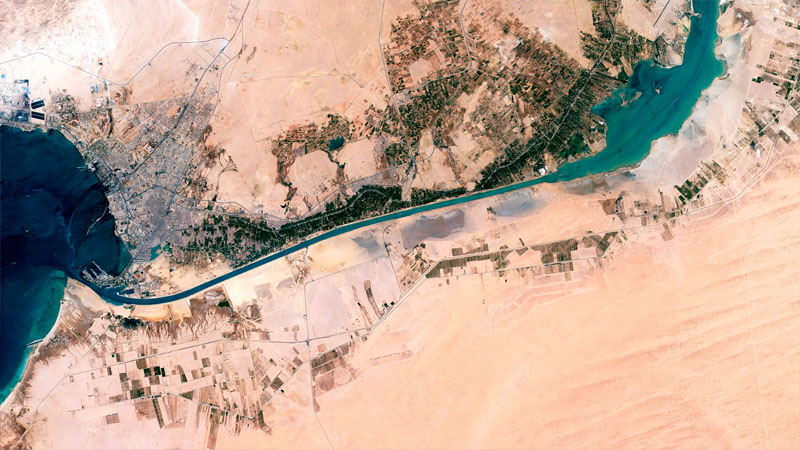Exclusive content

In March 2021, the world watched as the Ever Given container ship blocked the Suez Canal, causing a significant surge in transportation costs. Now, the recent conflict in the Red Sea region has raised concerns about potential food price inflation. However, a closer look reveals substantial differences between the situation in 2021 and the current circumstances, as analyzed by RaboResearch from the Netherlands.
Despite these differences, the costs of certain products are indeed increasing. Ships are now forced to take the longer route around the Cape of Good Hope, which adds eight to fifteen days to their journey, resulting in higher expenses. This primarily affects the import of shrimp and other specific items like palm oil, coconut oil, cashew nuts, grapes, ginger, avocados, and select coffee beans. However, the overall impact on the Dutch shopping basket is expected to remain limited, at least as long as the Houthi rebels confine their actions to the Red Sea.
Delayed Arrival of Key Products
Key agricultural raw materials and food products, including palm oil, coconut oil, cashew nuts, shrimp, grapes, avocados, ginger, and certain coffee beans, are among the imports from Asia and East Africa to the Netherlands. While the extended sailing time poses some risk, these products generally have a longer shelf life or are frozen, mitigating the potential for substantial losses. Moreover, their relatively high price per kilo allows for the passing on of increased transport costs. For instance, even with a significant container price increase, products like shrimp, coffee, and cashew nuts may only experience a 3 to 4 percent total cost increase. Cheaper items, such as palm and coconut oil or fruit, may see a slightly greater effect on their cost prices. Nevertheless, these product categories make up a relatively small portion of the Dutch shopping basket, and alternatives are available for many of them, reducing the immediate impact on inflation levels.
Uncertainty Surrounding Energy Prices
The Suez Canal plays a pivotal role in the energy market, with approximately 4.5 percent of the world’s crude oil, 9 percent of refined products, and 8 percent of liquefied natural gas (LNG) passing through it. Thus far, the actions of Houthi rebels in the Red Sea region have had minimal impact on energy markets. While world oil and gas prices briefly reacted to counterattacks by American and British forces in mid-January, they swiftly stabilized. The subdued global economic activity appears to outweigh the increased Middle East risks.
In Europe, the tankers rerouting around the Cape of Good Hope do not pose significant problems. The delay in energy carrier deliveries is manageable, as European stock tanks contain ample reserves of diesel, LNG, gas, and oil. Additionally, LNG tankers are still anchored off the coast for unloading, and Europe can turn to the United States for oil products if needed. However, it is essential to note that if energy supplies are disrupted, oil and gas prices will respond accordingly. As long as the Houthi rebel attacks are limited to the Red Sea, shipping companies have the option to bypass the Cape of Good Hope. The situation may change if the attacks shift to the Strait of Hormuz.